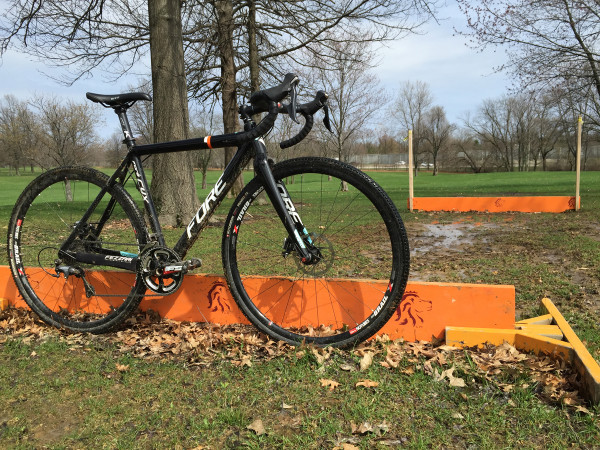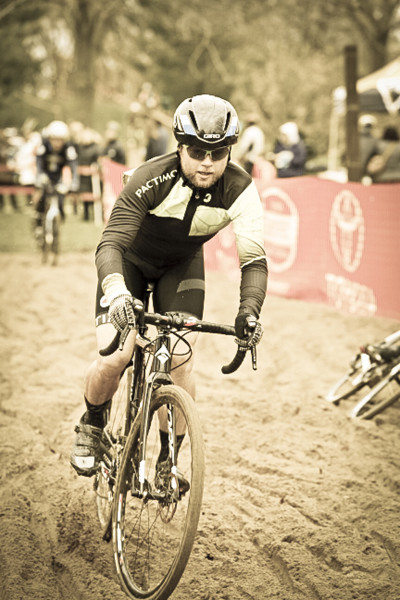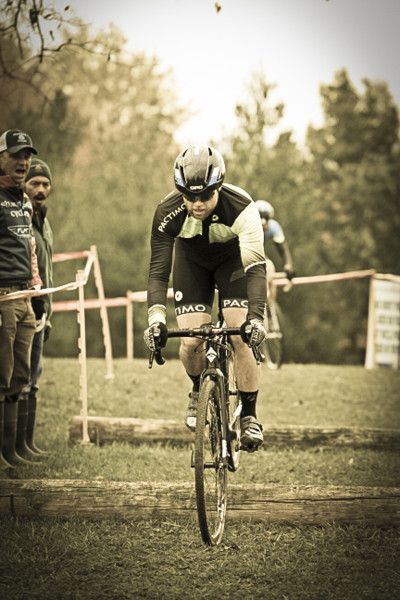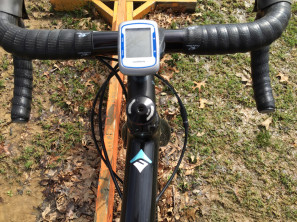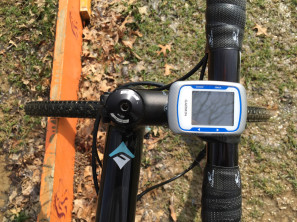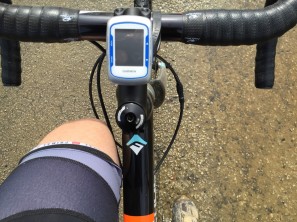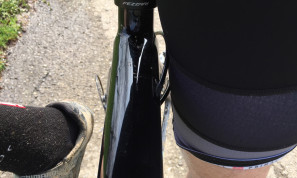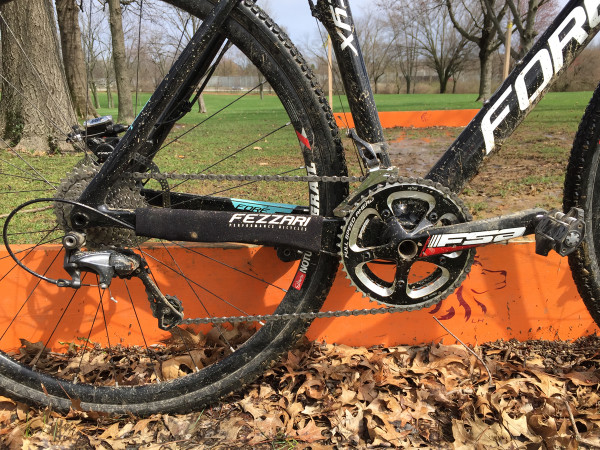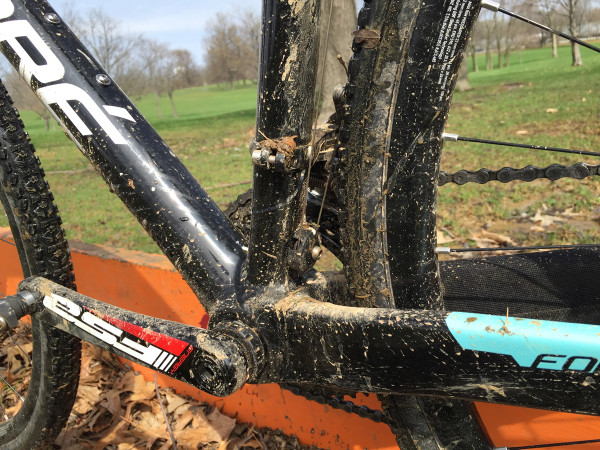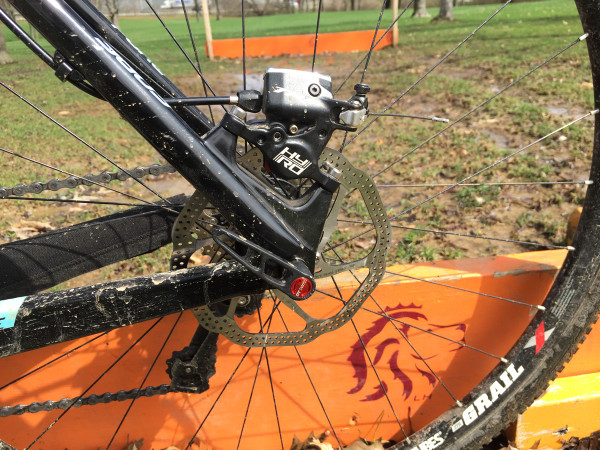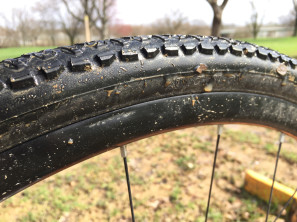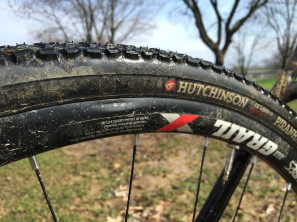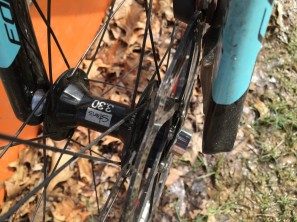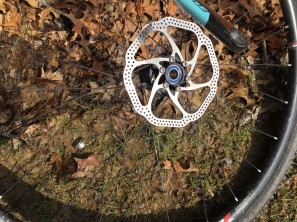Thanks to the booming popularity of cyclocross, there is no shortage of bikes to choose from for your skinny tire, offroad needs. Brands big and small are all offering up their own version of a cyclocross bike which can vary greatly from bike to bike. For Utah based Fezzari, their consumer-direct model puts them in a unique place to be able to offer a true race ready package at a competitive price. But compared to one of the brands you’ll find in a bike shop what are you actually getting?
Our initial impressions of the carbon Fezzari Foré Cyx 2.0, were quite favorable so we put it through a season of cyclocross abuse to see how it compares to the competition…
Race photos c. D.A. Fleischer Photography – love the expression form the Shamrock heckle Camp.
After years of lurking on the sidelines and using cross bikes only for unsanctioned races and rides, 2014 was the year I decided to actually enter a few races. Well, technically I made that decision in 2013 but an untimely broken arm knocked me out for the entire season. 2014 it was. We’re very fortunate to have an incredible local race scene with OVCX, and the races for 2014 didn’t disappoint.
Neither did the Fezzari. After finding myself on the podium in only my second race ever, the Foré Cyx continued to prove itself with excellent geometry and handling. When it comes to cross racing I’m certainly still more of a mountain biker and often found myself taking the more technical lines, braking late, and trying to dismount as little as possible. Whether a result of the carbon construction or the thru axles, the Cyx goes where you point it, and is extremely controlled over washboard ruts, off camber turns, and other technical bits. Even when completely gassed the frame still feels responsive which was how I picked up that second place after sprinting to the line on an uphill finish past the guy for third. Overall the frame and fork have a stout feel that perhaps doesn’t ride quite as light as more expensive frames, but it also doesn’t feel like it will fall apart after a few seasons. In an area with a lot of people that are seriously into cross, the Fezzari got a number of compliments as well as inquisitive onlookers wondering what exactly a Foré was.
Now, I won’t guarantee the Cyx will deliver podiums, but it won’t be the bike that’s holding you back.
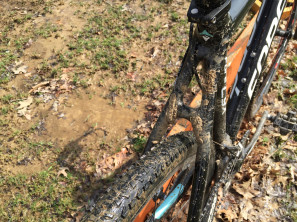
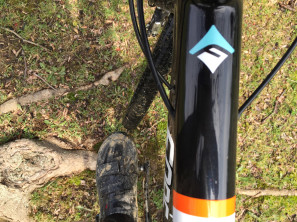
As a shorter rider (5’8″) smaller cyclocross frames often present challenges such as major toe overlap. I’m happy to report that the Small Foré Cyx manages to avoid this with a slightly slacker head angle than larger frames (71º vs 71.5 or 72 on the L and XL). While this puts the wheel out in front of the bike a bit more, the frame and fork seem to strike a nice balance between eliminating most of the toe overlap, and still offering adequately quick steering. I’ve had a few cross bikes in my size that were absolutely terrifying to ride due to the amount of toe overlap.
After riding the Foré Cyx in everything but the worst semi frozen mud, the tire and mud clearance appears plentiful. Don’t let the relatively clean frame in the pictures fool you, it has been thoroughly coated with mud and the tires were still spinning.
If I was to find fault with the frame it would definitely be with the cable routing. I’m assuming the issue might be worse on the shorter bikes, but when standing to sprint my legs would brush up against the cables on the front of the frame. At the rear, my left thigh would also rub on the cables as the exit on the top tube. A minor annoyance at best, but ideally there wouldn’t be any interference. I didn’t have time to try to reroute the cables so it’s possible that it could be remedied with some creative cable placement, but part of the problem seems to be that the rear brake cable is one solid piece of housing through the top tube. That means that as you turn the bars it pulls or pushes the housing back and forth, so even if you push the housing into frame so it doesn’t stick out as much, a few miles later it’s back in the same place. It also wasn’t really an issue of the cables being too long as they were just long enough to turn the bar 90 degrees. Again, it probably won’t be an issue for everyone, but for me it was a bit distracting.
Selling for $2,799, the Foré Cyx comes with their 23 point custom set up and a pretty impressive build kit including an Ultegra 6800 11 speed drivetrain for everything except the FSA Energy crank. Personally I like the addition of the 11-32 cassette with a 46/36 crankset. I ended up riding to a few CX time trials and other rides on the road and gravel so the wider gearing was appreciated. Over the course of testing the fact that the frame uses a bottom pull derailleur with a pulley on the seat tube never proved to be an issue. Also, depending on your stance on the matter the addition of a threaded bottom bracket for a carbon frame could be seen as a big plus.
The TRP HyRd brakes proved to be excellent stopper offering usable power in almost every situation. I won’t get into the semantics of cantis vs discs, but there was at least one race where riders on cantis were complaining that a downhill chicane on the course was too steep, while riders on disc brakes didn’t seem to mind. They did however prove that if you’re going to have multiple wheelsets you probably should invest in rotor shims (if they happen to be six bolt). During testing I was switching back and forth between the stock Stan’s Grail wheels, American Classic Argent, and Bontrager Affinity wheels and it required frequent adjustment of the brake caliper to prevent rubbing.
Honestly, the Stan’s Grail wheels were a bit of a disappointment. After the second race, I noticed that both wheels had pretty major flat spots in the rim. In true JRA fashion I have no idea when the damage occurred but I do know that I never got a flat which is the positive from the situation. My suspicion is that I flat spotted them while bunny hopping the telephone poles in one of the photos above – I don’t remember hitting them at all, but things get pretty foggy at race pace for me. On the Grails I was running the Hutchinson Piranhas tubeless at about 24-26 psi which I was able to do without burping or rolling the tire, just not without damage to the rim. The wall of the rim itself is very thin in the spot that the damage occurred which makes me think they would be well suited to a gravel bike where pressures will be higher, but not so much as a CX race wheel. I was able to straighten the flat spots and the rims still seal tubeless however.
The other bummer comes from the end caps on the Stan’s 3.30 hubs. Held in place by o-rings on the end cap, the front caps have a tendency to fall out of place when changing the wheel. Not such a big deal on a leisurely gravel ride but if you were trying to switch out the wheels in the pit of a cross race having the end cap fall out and into mud would be justification for some choice words. The photos above weren’t staged either. I was trying to take photos of the end cap and then it promptly fell out as if on cue.
The thru axles themselves were welcome additions to the frame and I had no trouble getting the American Classic or Bontrager wheels in and out quickly. Aside from the rim damage and hub issue, the wheels do have a nice ride quality and give the tires a nice profile.

Ultimately, in spite of the cabling issue, the Fore Cyx is still a bike that I would buy for myself (just with different wheels). I’d still like to find an answer to the cable issue, but the rubbing wouldn’t keep me from enjoying the rest of the bike and as mentioned, I suspect it would be an issue that is rider size dependent. So how does the Foré Cyx compare to other cross bikes on the market? One thing’s for sure – in a blind test you wouldn’t be able to tell this apart from the ride of the big guys. This isn’t a bike I would reach for on a long gravel ride, but as a pure CX race bike it really shines. There are still a number of benefits to buying a bike from your local shop, but if you live in an area without access to one or prefer to do all your own stunts (wrenching) the Fezzarri Foré Cyx is an excellent buy.
